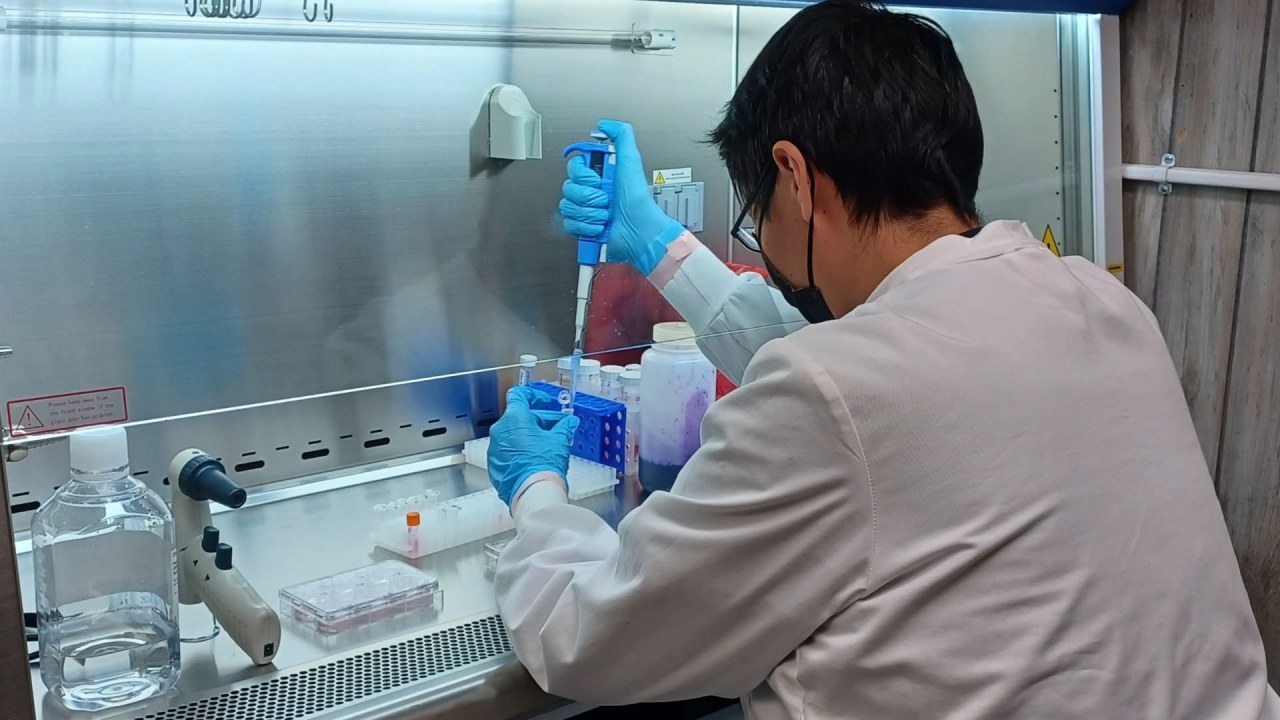Harrison Cayatineto’s Research Offers Potential Breakthrough in Fighting Flaviviridae Viruses
Feb 3rd, 2024
Tuba City, Ariz. – An innovative study by Harrison Cayatineto, a graduate student at Diné College’s School of STEM in Tuba City, has identified a microRNA with significant potential to combat viruses in the Flaviviridae family, which includes dengue, Zika, and yellow fever.
His findings focus on hsa-miR-548d-3p, a microRNA that could disrupt viral replication by targeting essential capsid and nucleocapsid genes.
“This microRNA was identified after approximately 67,000 alignments,” said Dr. Shazia Tabassum Hakim, Cayatineto’s research supervisor. “The sequence he found is unique, and he is now testing it through in vitro experiments. His extraordinary attention to detail and technical expertise are impressive, and he is an inspiration to his peers.”
Cayatineto’s research uses the Bovine Viral Diarrhea Virus (BVDV) as a surrogate model to explore therapeutic options for hepatitis C. He applies a bioinformatics-driven approach, using tools like miRBase, NCBI, and BLAST to pinpoint promising candidates for antiviral therapies. His ongoing experiments involve injecting hsa-miR-548d-3p into MDBK cell lines and monitoring virus inhibition through plaque assays.
This work introduces a novel approach to combating Flaviviridae viruses, which remain a global health challenge. Although further research is essential to validate these findings, Cayatineto’s study serves as a solid foundation for miRNA-based antiviral treatments.
Cayatineto recently published his research in Frontiers in Bioinformatics, and a public presentation of his work is scheduled for February 13, 2025, via Zoom. Further details will be announced.
For more information on his study, visit his publication at Frontiers in Bioinformatics.
(Photo: Harrison Cayatineto, a graduate student at Diné College’s School of STEM in Tuba City, Ariz.)





